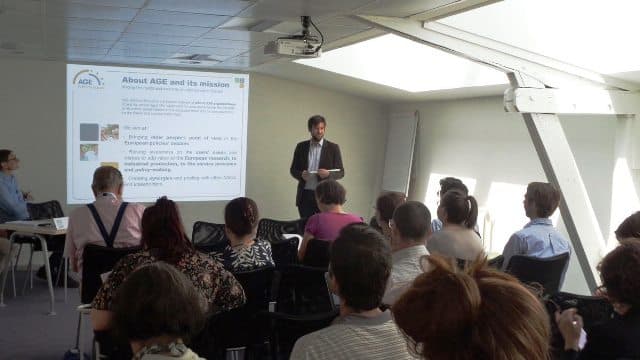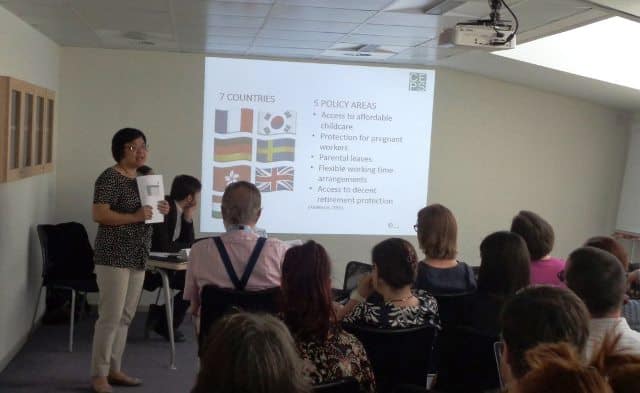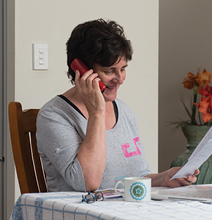
Together with CEPS Think Thank, AGE Platform Europe organised a seminar on ‘Work-life Balance, De-familisation and Adult Worker Models: Challenges faced by older workers’. The joint lunch event mainly discussed the challenges faced by older workers, especially women, who are still socially expected to bear the primary caring role.
Persisting gender pension gap in the EU
Philippe Seider, AGE Policy Officer, presented statistics showing the impact of gender inequalities on pension adequacy and the higher risk of poverty faced by older women. Women tend to have lower pension income, mainly due to their caring responsibilities and longer life expectancy in poor health. Yet, increasing gender equality would have significant economic benefits, namely in raising the employment rate.
The importance of improving work-life balance was also at the core of the discussions. Philippe Seidel referred to the Work-life balance directive proposed by the European Commission, which initially foresaw a 5-day paid leave for informal carers. This proposal was unfortunately diluted after negotiations at the Council, in which the mention of remuneration and of a defined number of days was removed.
Looking into the complex challenges of women’s labour participation

- The availability of sufficient support to families
- The availability of employment opportunities for women
- Women’s willingness and capacities.
To avoid mismatch, all of those three conditions need to be met.
Ms Chau furthermore highlighted the current changing ‘Adult worker Models’. Now everybody has to become a worker: older people, people with disability, people with caring responsibilities, etc. We need to create the conditions to make this possible.
The research concludes on the need for:
- better understanding the complex issues behind the lack of women’s labour participation,
- more respect for women, not only as workers but also as individuals and citizens,
- respect for both paid and unpaid work,
- flexible and comprehensive support to women’s labour participation.
Presentations can be found on the webpage of the FACTAGE project






